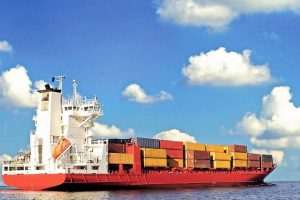Why Should You Invest In Your Employee?
A study reported that 70% of American workers are either uninspired or are disengaged at work, costing businesses more than $450 million in the year 2013. The reason behind this can be that employees do not feel supported, over-scrutinised or that they do not have job security. Employees who work in a high-stress state are more likely to be less effective, more distracted and have difficulty concentrating. In contrast, when the environment is more supportive, employees have the space to be creative and outspoken, optimising their working capacity. Using employee benefits can no longer differentiate a company like…
Read MoreHazards And Operability (HAZOP)
Risk management can be defined as the collection of culture, processes and structures that are directed towards realising potential opportunities whilst managing adverse effects. Risk assessment can be carried out via the use of various methods, tools and risk assessment schemes. Hazards and operability (HAZOP) is a qualitative method analysis that is developed to identify risks and operational problems through the effects of deviations from design conditions in industrial process plants. The analysis focused around a number of guide words which are derived from method study techniques. The guide words ensure that the questions posed to test the integrity…
Read MoreWhy Should Businesses Invest In Human Capital?
All businesses are made up of three basic economic resources – land, labour, capital. Land is the physical resource that is used to produce the goods or services,; labour refers to the manpower required to transform resources into consumer products; capital refers to the money that can be used to purchase land and labour. From this equation, increasing any of the three factors can potentially lead to business growth. Hence, developing human labour has become an important ingredient in promoting business growth. Businesses invest in employee training to improve business operations, working towards waste reduction and increasing overall employee…
Read MoreMaritime Safety In Singapore Strait
Two fatal collision occurred in the Singapore Strait, resulting in the death of twelve sailors and potentially adding three more to the equation. The collision occurred on 21 August and 13 September, and this has raised safety concerns with Singapore’s plans to be a major maritime hub. In response to the collision on 21 August, Maritime and Port Authority of Singapore (MPA), has reflected that its Vessel Traffic Information System had alerted both vessels to take the necessary actions to avoid the incident. However, although information was successfully transmitted, the accident could not be averted. It is important to…
Read More45 Organisations Have Committed To A New Framework For Workplace Safety
On September 4, 45 organisations signed a new accord for workplace safety. This accord is a new framework that aims to have organisations to express their commitments in improving occupational health and safety for professionals and practitioners. The accord is created in hopes that organisations can carry out the creation and sustainability of healthier and safer workplace. This accord is initiated by Singapore Institution of Safety Officers (SISO) and organised by the International Network of Safety and Health Practitioner Organisations (INSHPO), calling and urging companies worldwide to adopt similar framework, promoting high standards of practice among health and…
Read MoreWhat Are The Approaches To Estimating Project Cost?
It is difficult to accurately estimate the cost of a project. One of the biggest challenge that project managers faced is that they are held accountable for their budget estimations despite the uncertainties that the project is facing. Accurate budgeting becomes an essential skill for a project manager, it is important that project managers find an appropriate approach to use to facilitate their project management. There are two main approaches to take when creating a budget – top-down approach and bottom-up approach. Top-down approach requires the project management to decide how much the project will cost and dividing…
Read MoreHow To Develop SLAs?
In today’s business climate, management are on the quest to tighten budgets and pressure on resources. Several public and private organisations (including local authorities) are outsourcing services to external organisations under ‘service level agreements’ or ‘service level contracts’. SLA (Service Level Agreement) is defined as a contract between a service provider and a customer. It includes (in detail) the nature, quality and scope of the service to be provided. SLAs can be lengthy and complex, but they are essential in providing good service and maintaining a pleasant working relationship between vendor and customer. How to develop SLAs? …
Read MoreThe Future of Gippsland Basin
CGG[1] has commenced the start of Gippsland ReGeneration 3D reprocessing project in Australia’s premier Gippsland Basin. This project will be presenting the highest-resolution 3D seismic data available in this industry. Imaging the Gippsland Basin’s shelf break and various submarine channels is an arduous task. The introduction of CGG’s technology, this project will bring forth significant reservoir imaging improvements, reveal potential deep reservoir targets and improve the industrial understanding of the basin. The Gippsland Basin has recorded to produce over four billion barrels of liquid hydrocarbons and seven trillion cubic feet of gas. The first recorded offshore discovery was…
Read MoreDealing With Talent Crunch In Singapore
In the second quarter of 2015 Singapore saw a decrease in the number of job vacancies and an increase in unemployment rate. Statistics have shown that unemployment rate is still increasing. “With increasing volatility in the global economy, including China’s economic slowdown, it is not surprising that employers may be more cautious in their hiring in order top protect themselves against the full impact of economic instability.” – Michael Smith, Randstad Country Director – Singapore Local bosses are increasingly looking to align job scopes and leverage on technology to reduce labour costs. Hence it is important for both the job…
Read MoreWhat Is Systems Thinking?
Systems theory is one of the major breakthroughs in the understanding of organisations. It studies organisational systems from the perspective of the whole system, the various subsystems and the recurring patterns in the relationship between the subsystems. System theory has a great influence on how we understand and change organisational structure. “Systems Thinking is the art and science of making reliable inferences about behavior by developing an increasingly deep understanding of underlying structure” – Barry Richmond, American systems scientist Simply put, it is a management discipline that concerns an understanding of a system by examining the linkages and interactions between…
Read More









